Other fraudulent platforms are emerging shortly after a fraudulent network that pretended to be the globally recognised advertising agency ‘Forsman & Bodenfors’ (F&B), was exposed for masterminding over a six-month-long digital scam that defrauded unwary Nigerians out of millions of naira.
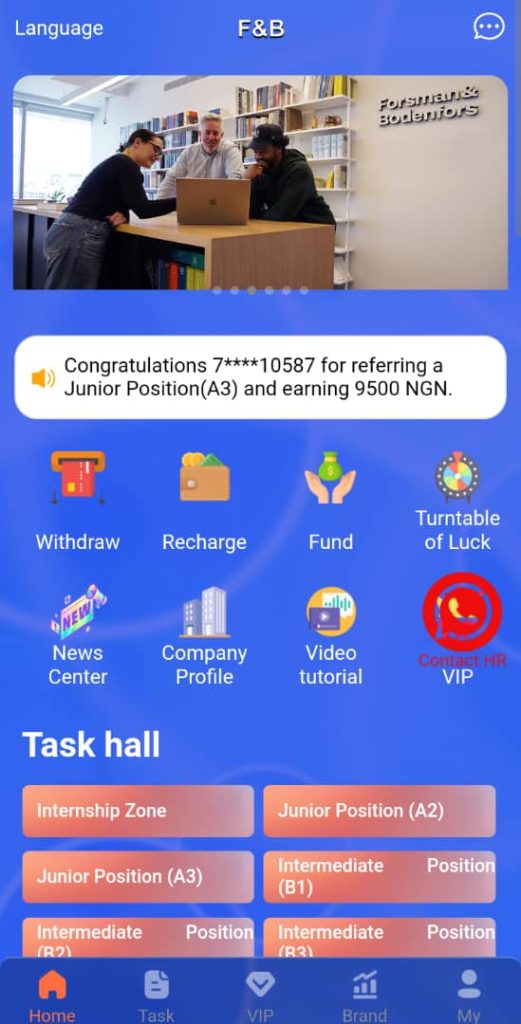
Investigations by Mothercloud News show that some people continue to use WhatsApp network groups to conduct covert operations. The new scammers are following the same pattern of schemes as the previous ones who pretended to be from F&B, a legitimate creative powerhouse that was established in 1986 in Gothenburg, Sweden, and is renowned for its inventive marketing campaigns and non-hierarchical team culture.
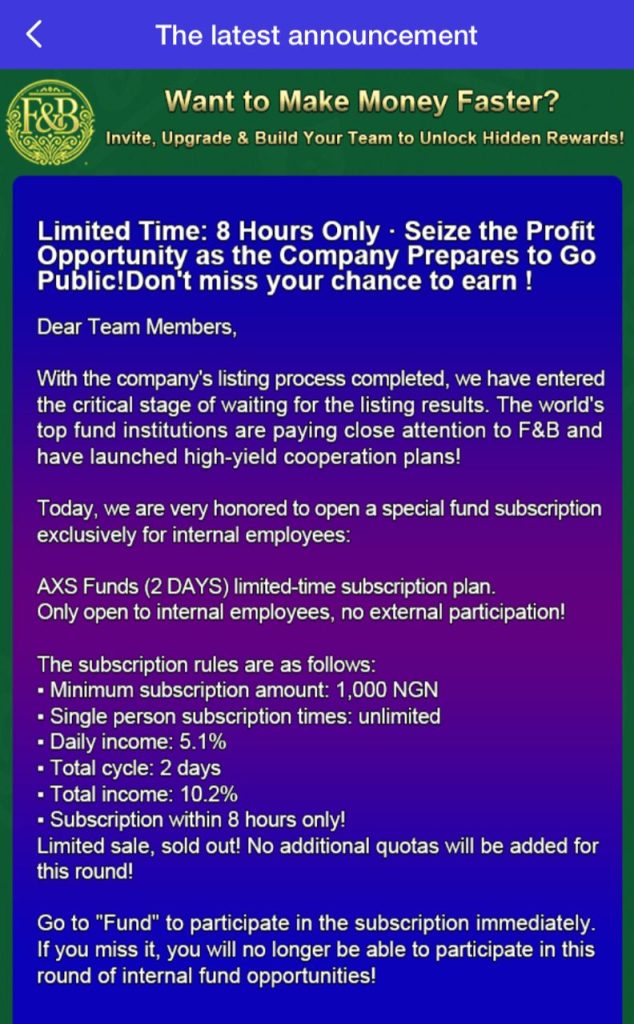
Remember how the fake group (F&B) used sleek marketing language that was lifted from F&B’s real branding to entice victims? Falsely representing themselves as a global creative firm in advertising, brand strategy, and digital marketing, their phony “About Us” section mimicked the image of the actual business. In a traditional Ponzi scheme, victims were promised the opportunity to make additional money by working as “formal employees” or by inviting A-level subordinates.
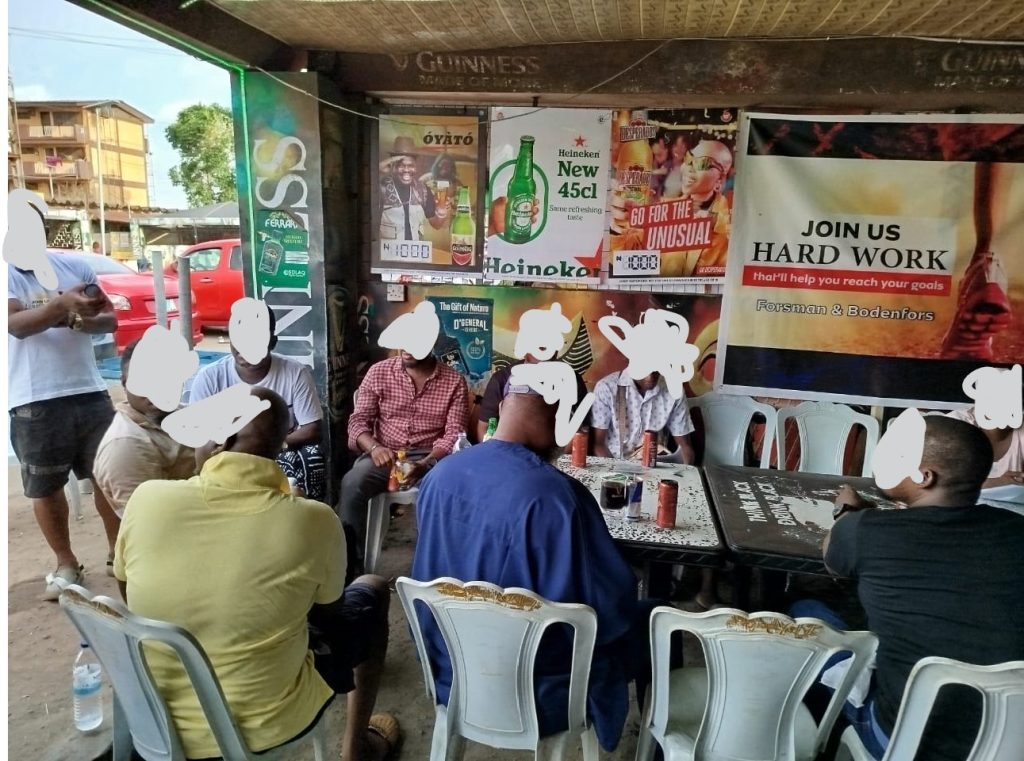
For more than six months, the scam operated covertly, luring victims with guarantees of withdrawals, incentives for bringing in new members, and huge daily profits. Because of the real Forsman & Bodenfors’s reputation, many people thought the enterprise was genuine.
In a scheme reminiscent of traditional multi-level marketing (MLM) fraud, participants were urged to pay progressively larger amounts in order to “unlock” further levels or withdrawal rights. Some victims had lost all of their cash, while others had lost hundreds by the time the platform failed.
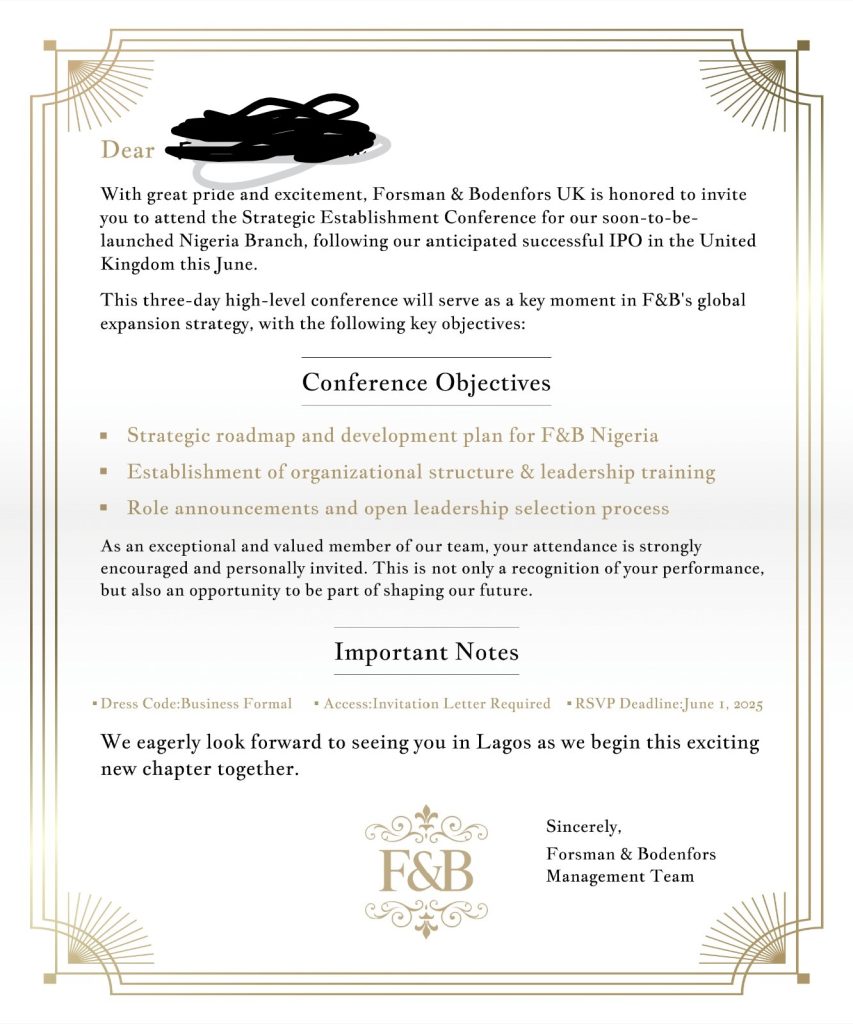
Shortly after the platform collapsed, the genuine Forsman & Bodenfors issued a public disclaimer on its official website:
“It has come to our attention that individuals and businesses are falsely claiming to represent or be affiliated with Forsman & Bodenfors in Nigeria. These claims are entirely fraudulent.
Forsman & Bodenfors does not have any official presence, office, or representatives in Nigeria. Any organization or individual claiming otherwise is not affiliated with us in any capacity” (https://www.forsman.com/).
The F&B impersonators who have been exposed are not the only ones. A similar Ponzi scheme was imitated by another scam, called Exro Technologies, with minor differences in the investment tiers, interest payments, and withdrawal policies. Despite having a short existence (less than a month), it was able to defraud more than 1,000 Nigerians, resulting in millions of naira in lost revenue.
Other dubious organisations identified by Mothercloud News that are presently operating and being investigated for using comparable fraudulent schemes include:
Uber (impersonated),
Max Niotop,
MOBBAds,
Mint Cart Store.
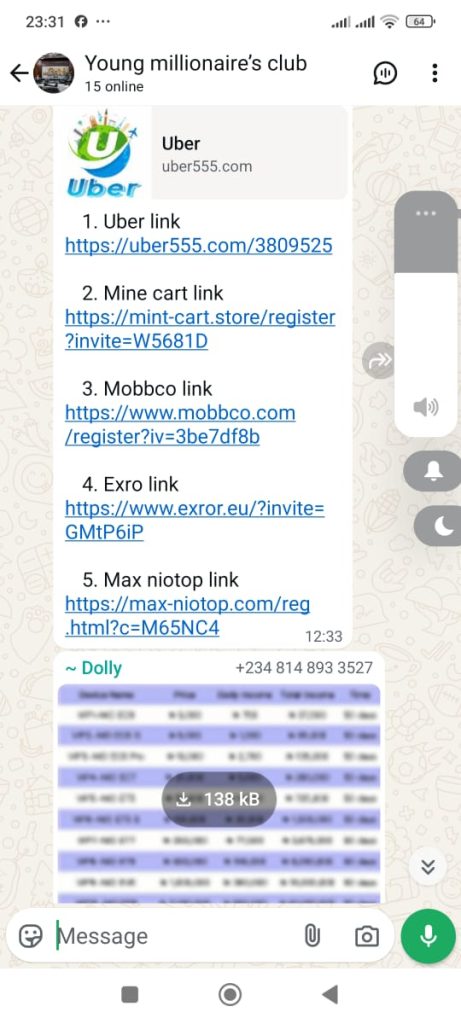
Others who have not yet been named are under our watch. It has been ascertained that they use the same patterns in order to deceive investors; each of these platforms used borrowed legitimacy by feigning high-tech qualifications or identifying themselves with legitimate firms.
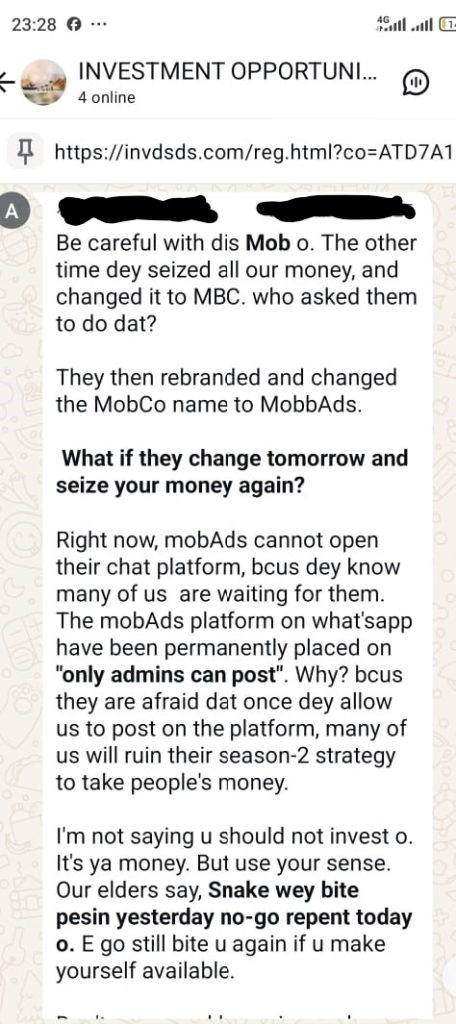
Some participants are willingly taking the risk of investing their money, knowing that the schemes will inevitably fall, with the hope of cashing out before the end. In one instance, scammers attempted to take over the admin of a specific WhatsApp group; the sole admin’s denial prompted the Ponzi platform to shut down, citing foul play as the cause.
Experts in security and cybercrime are advising the public to confirm all investment platforms, particularly those that use unofficial channels like Facebook groups, WhatsApp, or Telegram. Although insiders indicate investigations are still underway, the Economic and Financial Crimes Commission (EFCC) has not yet verified any arrests in relation to the F&B impersonator case.
Global corporations are being urged by media and technology experts to keep a close eye on brand imitation, particularly in areas where digital fraud is common.
Those who fall for such deceitful F&B or similar frauds are advised to:
Inform the Nigeria Police Force’s cybercrime unit or the EFCC about the event.
To report unusual transfers, get in touch with their banks right away.
Don’t give personal information to unidentified online investment groups.
Alert those inside their networks.
In the era of widespread connectivity, scammers use people’s desperation and well-known brands as the means to take advantage of them. Public awareness must increase as these schemes continue.







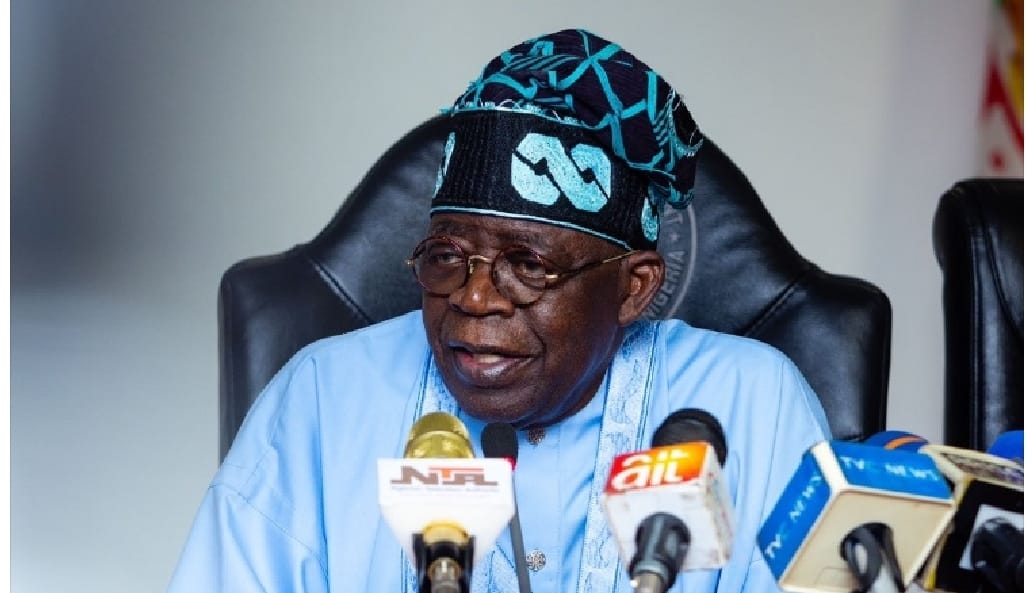
Leave a Reply